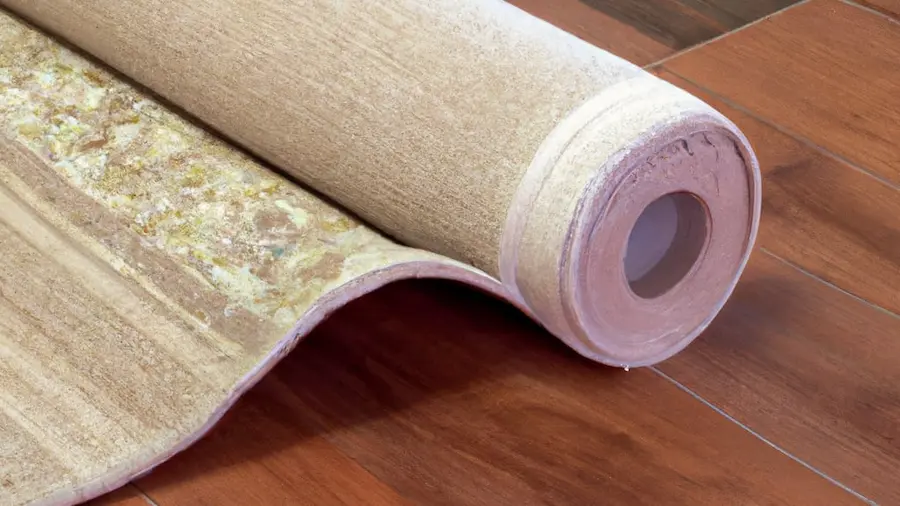~ 5 min read
The [Best] Materials for Your Basement Floor Covering

If you have an old, dark, damp basement you probably don’t spend much time there. But your basement doesn’t have to be the worst room in your house. Choosing the right flooring for your basement will make a huge difference. So spruce up your basement with the perfect basement floor covering.
With so many options for your basement floor, it is essential to know each of the material’s pros and cons.
Different types of basement flooring
If you’re remodeling your basement, choosing suitable flooring material is essential. If you get the flooring wrong chances are you will not want to spend any time in the basement. Here is a list of flooring options.
Carpet
Basement spaces with concrete slabs typically have the easiest time with carpeting. When you have a carpeted basement, wall-to-wall carpeting can add a feeling of plush comfort without taking up precious floor space. Alternatively, you can lay carpet tile over the existing concrete to give the appearance of a plush carpet without the expense and padding.
Epoxy
Epoxy flooring is another popular type of basement floor. Epoxy flooring consists of a thin layer of epoxy over smooth concrete that gets polished to a high shine. It not only looks great but it seals the concrete floor against moisture. If you have a basement that is prone to minor flooding it is a great choice.
Luxury vinyl plank/tile (LVP/LVT)
Luxury vinyl plank (LVP) and tile (LVT) look similar to ceramic tiles or wood flooring. The flooring offers the warmth and feel of natural material but requires none of the maintenance. You can easily clean it with a damp mop, and you can buff scratches.
Concrete
In addition to concrete flooring, concrete surfaces such as concrete walls, windowsills, and countertops are popular basement ideas. These concrete basement ideas are durable, easily cleaned, and match other concrete basement ideas.
Pros and cons of each type of basement flooring
Using basement floor coverings can extend the life of your flooring and keep it looking new for years. Many types of basement flooring materials are available for homeowners to use to seal and protect their basement floors. Think about how you intend to use your basement, how much maintenance you want to do, and whether you choose to leave your floor bare. Below, you will learn about the different types of basement flooring available and their pros and cons.
Carpet
All carpet provides a soft feel between your feet and the basement floor. But it’s not the best choice if you want easy access to the pipes or wall cables behind the wall. After finishing the wall, you’ll have to cut around individual carpet squares carefully.
Epoxy
Epoxy floor coatings are famous for basement flooring because they’re easy to apply and provide a smooth, durable, and nonslip surface. Like paint, epoxy is available in all kinds of colors so you can match your floor to the rest of your basement decor. The only drawback for epoxy is maintenance, as it needs to have a regular polish to keep it looking its best.
Concrete
One of the most common basement floor materials is concrete because it’s strong, durable, and low maintenance. Consequently, it’s relatively cheap when compared to other flooring materials and can be finished in a variety of ways. Concrete basement floors also resist moisture, so they’re suitable for basements. As an insulator, concrete will help keep your basement warm in the winter and cool in the summer months.
Luxury vinyl plank/tile (LVP/LVT)
Luxury vinyl plank/tile (LVP/LVT) looks similar to luxury vinyl flooring (LVT). The vinyl planks or tiles are often attached with a hidden hinge so we can easily lift them to access plumbing or wiring. The most significant difference is that LVP/LVT is designed for basement use only, so it’s not rated for high moisture areas such as bathrooms.
How to choose the best type of flooring for your needs
As basements a notoriously damp places, water resistant flooring is the best choice. With so many options available it is important to know the pros and cons.
Segmenting your space into areas with wall-to-wall carpeting will give you the functionality you need to create livable spaces. But this type of installation can be labor intensive and costly. It can also be damaged by water, requiring expensive repairs.
Linoleum, a type of water-resistant flooring that has been popular in the past, has many of the same drawbacks. It is still available but is not as common as it once was. Vinyl sheet flooring is another option that is better for moisture resistance, but it is usually not as durable as other flooring options.
Square foot costs for basement flooring vary widely based on the type of material you choose. Installing any water-resistant flooring on a concrete basement floor will be more expensive than installing the same flooring on a wooden subfloor.
You can use many materials for basement flooring, but some are better than others. Carpet, tile, and linoleum are all excellent choices, but hardwood floors are the best option if you can afford them. They’re durable, easy to clean, and they look great.